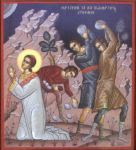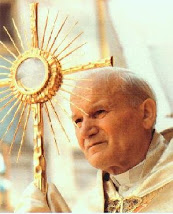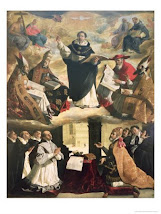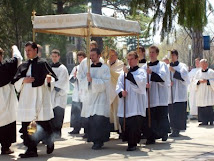The intent of this blog is to show the validity of the Scholarly (Moderate) Conservatism approach in respect towards Jesus’ knowledge of himself with some supportive material from the Bultmannian Existentialism. Scholarly (Moderate) Conservatism is more conservative than that of Bultmannian Existentialism in terms of a discernible continuity between the evaluation of Jesus during the ministry and the evaluation of him in New Testament writings (Brown, 1994, 14).
However, because there are five approaches to New Testament Christology, if used alone we run the risk of not explaining fully the biblical message or even of proposing a watered-down picture of Jesus Christ (Fitzmyer, 1986, 19). The latter statement is not limited towards the study of theology it is extremely employed in the Public Administration field as well (figuratively speaking, instead of a watered-down picture of Jesus Christ, we have a watered-down picture of government). Although there is only one model of choice, there are several to choose from (and for the most part, most work in conjunction with the other) to support the main topic or the problem at hand. Which, in this case, is Jesus the Christ.
Christos or anointed one normally denoted the king of Israel. Any kingly Messiah was linked with the divine election of the house of David, and to include was the hope for an everlasting dynasty. Through the prophet Nathan, God was believed to have promised David “your house and your kingdom shall be made sure forever; your throne shall be established forever” (2 Sam 7:16) (O'Collins, 1995, 27). In his letters, Paul uses “Christ” 270 times but never considers it necessary to argue explicitly that Jesus is “the Christ” whom Israel expected. “Christ” seems already to have lost much of its titular significance (or messianic expectations) and to be functioning largely as an alternative name for Jesus (O'Collins, 1995, 25). It was as a believer and theologian that Bultmann showed himself as a radical reductionist, claiming that we neither can nor should found our Christian faith and theology on any supposedly ‘objective’ basis in history—apart from one objectively historical event, the crucifixion. We need to do no more than affirm the dass, the mere fact that Jesus existed and was crucified, without enquiring about the was, what Jesus was in his own history (O'Collins, 1995, 6). Bultmann continued to accept the methodology developed by liberal scholars in classifying stages in the development of New Testament Christology and indeed sought to refine the method more precisely. He did not think that Christology distorted the import of Jesus, rather, there was a functional equivalence between the New Testament christological proclamations and Jesus’ proclamation of the kingdom of God (Brown, 1994, 14).
Scholarly Conservatism contends that explicit Christology would involve a self-evaluation in which Jesus employed titles or designations already known in Jewish circles. Implicit Christology would relegate such titles and designations to early church usage but would attribute to Jesus himself attitudes and actions that implied an exalted status, which was made explicit after his death (Brown, 1994, 14). Nevertheless, in Christology it would be as mistaken to ignore all the implicit (and sometimes explicit) ontological affirmations in the New Testament as to deny the strong soteriological interests of the Fathers of the Church and the early councils (O'Collins, 1995, 19). Explicit Christology, which seemed to be fading, got new life in the late 20th century. “Son of Man” remains a title that many scholars think Jesus used of himself. “Messiah” remains a title that others may have used of him during his lifetime. The Qumran discoveries show that titles like Son of God and Lord were known in the Semitic-speaking Palestine of Jesus’ time (Brown, 1994, 15). This mode of presenting himself as “Son” in the presence of “the Father” is found a number of times, either in the Fourth Gospel (e.g. Jn 17:1; Jn 3:35-36, 5:19-23) or in the so-called Johannine “logion” of the Matthean and Lucan Gospels (Mt 11:25-27 = Lk 10:21-22). This familiar relationship of Jesus with God appears so intimate that he can assert: “All things have been entrusted to me by my Father. No one knows the Son except the Father; nor does anyone know the Father except the Son, and the one to whom the Son chooses to reveal Him” (Mt 11:27; cf. Lk 10:22) (Fitzmyer, 1986, 45).
To further correlate the concept of Scholarly (Moderate) Conservatism, Yahweh himself would be the eschatological king over all the earth (Zech. 14:9); the rule of the transcendent God would be revealed in the rule of the messianic, Davidic king, who may also possibly be symbolized by the one ‘like unto the son of man’ to whom universal and everlasting dominion would be given (Dan 7:13-14). The first Christians identified Jesus as the promised Messiah and Jesus himself interpreted his person and activity messianically (O'Collins, 1995, 28).
Thus far, I have shown a foundation rooted with Bultmannian Existentialism and the correlation of Scholarly (Moderate) Conservatism and Bultmannian Existentialism. This is necessary for the reasons of thought, questions, and the ideology of Christology is ever evolving within our “human experience” with Jesus.
In view of the fact that “human experience” is (in my opinion) primarily responsible for our individual “Christology,” Christian readers must beware of an instinctive tendency to interpret the Jewish expectation of the Messiah in the light of Jesus’ career and person. The Jewish concept of the Messiah had to undergo considerable modification before it could be applied to Jesus, whence Jesus’ reluctance to accept the title without qualification (Brown, 1994, 160).
References
Brown, S.S., R. E. (1994). An Introduction To New Testament Christology. New York: Paulist Press.
Fitzmyer, S.J., J. A. (1986). Scripture and Christology; A Statement of the Biblical Commission with a Commentary. New York: Paulist Press.
O'Collins, S.J., G. (1995). Christology. New York: Oxford University Press.
Senior, D. Getty, M. A., Stuhlmueller, C. & Collins, J. J. (1990). The Catholic Study Bible. New York: Oxford University Press.
Christian Education
"Since all Christians have become by rebirth of water and the Holy Spirit a new creature(8) so that they should be called and should be children of God, they have a right to a Christian education. A Christian education does not merely strive for the maturing of a human person as just now described, but has as its principal purpose this goal: that the baptized, while they are gradually introduced the knowledge of the mystery of salvation, become ever more aware of the gift of Faith they have received, and that they learn in addition how to worship God the Father in spirit and truth (cf. John 4:23) especially in liturgical action, and be conformed in their personal lives according to the new man created in justice and holiness of truth (Eph. 4:22-24); also that they develop into perfect manhood, to the mature measure of the fullness of Christ (cf. Eph. 4:13) and strive for the growth of the Mystical Body; moreover, that aware of their calling, they learn not only how to bear witness to the hope that is in them (cf. Peter 3:15) but also how to help in the Christian formation of the world that takes place when natural powers viewed in the full consideration of man redeemed by Christ contribute to the good of the whole society.(9) Wherefore this sacred synod recalls to pastors of souls their most serious obligation to see to it that all the faithful, but especially the youth who are the hope of the Church, enjoy this Christian education."
Gravissimum Educationis
Gravissimum Educationis
Wednesday, March 25, 2009
Subscribe to:
Post Comments (Atom)




































No comments:
Post a Comment